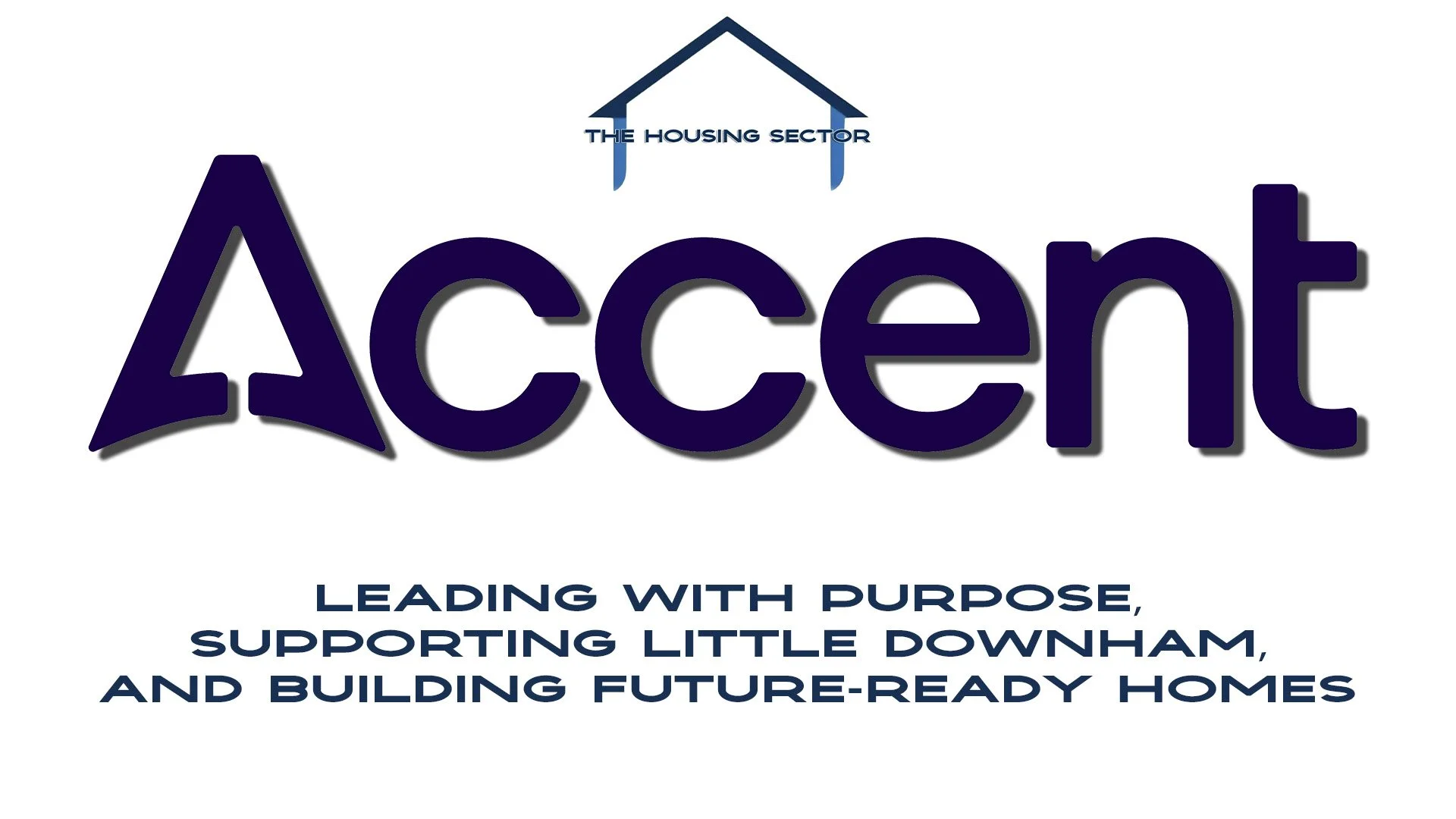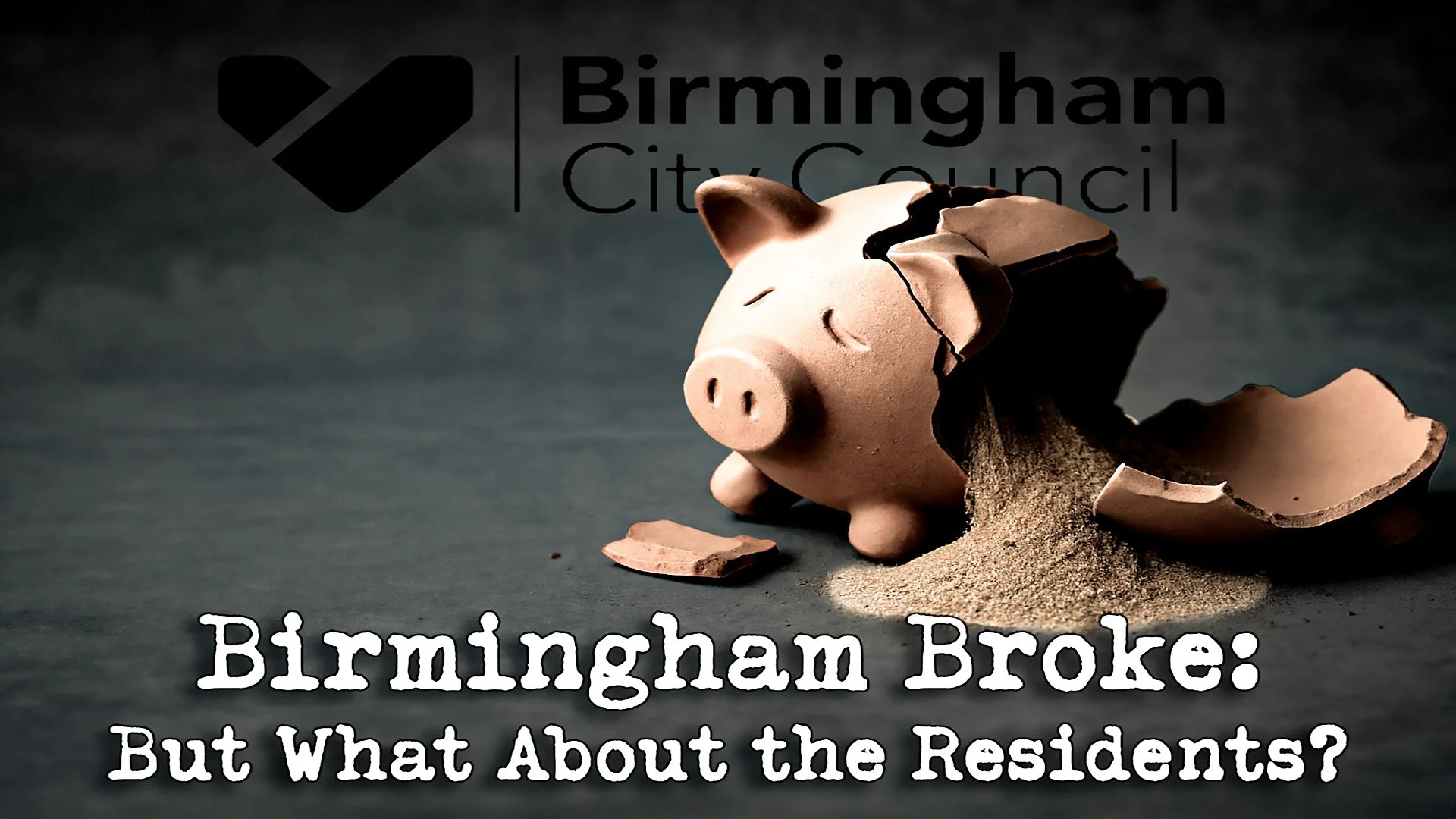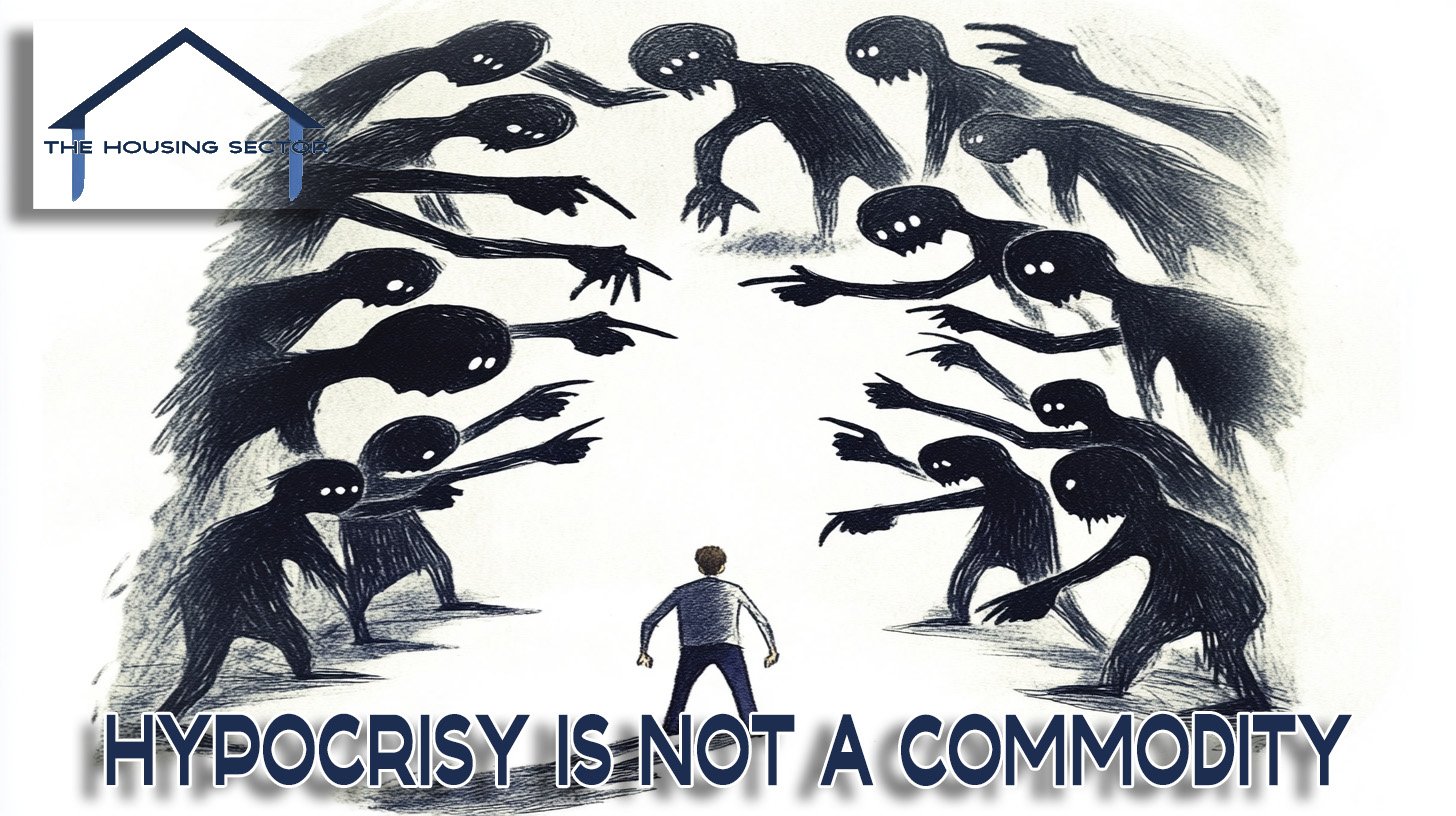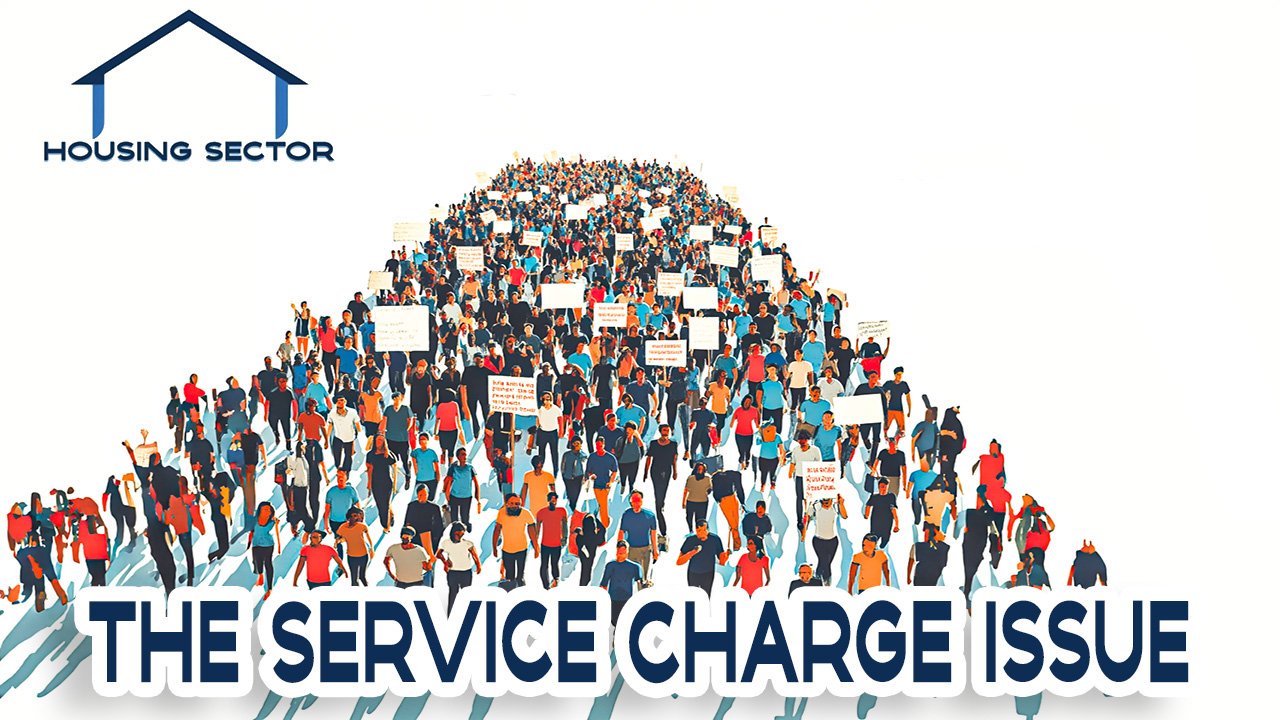
Tough at the Top?
When housing CEOs fail, they rarely fall — they just change chairs. From GreenSquareAccord to Notting Hill Genesis, this piece examines the leadership loop at the top of social housing, where accountability fades, mergers fail, and residents pay the price.

When Your Home’s Unsafe, Are the Problems Only Just Beginning?
Eight years after Grenfell, the list of unsafe buildings keeps growing. Thousands have already been evacuated — but how many more remain unsafe, unacknowledged, and unaddressed? In this week’s Housing Sector blog, I speak with Matt Hodges-Long of the Building Safety Register about the rising number of homes being declared uninhabitable, the residents left in limbo, and a government still downplaying the scale of the crisis.

Tackling Stigma or Protecting the System?
Stop Social Housing Stigma presents itself as a tenant-led movement, but its funding and partnerships tell another story. Supported by housing associations and sector bodies, it has become part of the very system it claims to challenge — a comfortable echo chamber where executives applaud their own progress while tenants remain unheard.

Do we need a Union?
On Saturday 11th October, SHAC will host a national conversation about forming a Tenants and Residents Union — a movement that could shift the balance of power in UK housing. This blog explores that question head-on: from broken complaint systems and regulatory dead-ends, to the power of coming together, sharing knowledge, and fighting for fairer, safer homes. Whether you’re ready, unsure, or still finding your voice — this is the start of something bigger.

Accent Housing Leading by Example
Accent Housing recently shared three stories that show a different side of the sector: leadership grounded in compassion, investment in rural communities, and a commitment to sustainability. From safeguarding and rural exception sites to future-ready housing, these examples highlight what’s possible when housing is done differently.

Birmingham Broke: But What About the Residents?
Birmingham City Council is bankrupt — but what does that mean for residents living in unsafe homes? From broken fire doors to questions over missing housing funds, the Council enforces standards on private landlords while failing its own tenants. If Birmingham can’t lead by example, who can?

Fire Safety in High-Rise Homes - Compliance Fact or Compliance Theatre?
High-rise safety can look reassuring on paper, with inspections, scores, and compliance reports. But as Birmingham resident and health & safety professional Mel Little explains, too often it’s compliance theatre — safety measures that tick boxes but fail in practice. From faulty fire doors to missing safety documents, Mel highlights what residents should look out for, their rights under the Building Safety Act, and why real safety must go beyond paperwork.

Chartered Institute of Housing: Spin. Silence. Repeat.
When I was first slapped with a so-called contact management plan—what it really was, was a communication ban—I was shocked. GreenSquareAccord stopped me from emailing staff, blocked me from sharing updates with leadership, and told me that copying in multiple people “muddied the waters.” It was the beginning of an institutional gag order.

What Do I Mean by the Echo Chamber?
I didn’t coin the phrase echo chamber — but the moment I heard it, something clicked. It put words to something I’ve been feeling for years in the housing sector. It’s not just that residents are being ignored; it’s that a closed loop of professionals are talking to each other, validating each other, and shaping public narratives without ever meaningfully engaging with the people actually living through the housing crisis.

We Remember Grenfell — But They Still Reward the Guilty
Eight years on from Grenfell, the banners go up again. Green hearts. Thoughtful quotes. Hashtags of remembrance. The sector remembers — but only once a year, and only on its own terms.
Let’s be clear — if remembrance meant anything, accountability would have come by now.

Reluctant Heroes
Five people. Five stories. One broken sector.
I’ve said it many times, I never set out to be involved in housing. I certainly didn’t imagine I’d be making podcasts, building websites, or writing about legal cases and service charge scandals.

Content Wars – The Battle to Control the Narrative
There’s a battle underway in the housing sector — but it’s not being fought with bricks or budgets. It’s being fought with blogs, infographics, press releases, conferences, events, webinars, and reposted reports. A full-blown Content War — and the aim is simple: control the narrative.

The Stigma with Stop Social Housing Stigma
There’s been a wave of publicity recently around the Stop Social Housing Stigma campaign — a movement said to have been born in the aftermath of Grenfell. And yes, it’s on record: residents were dismissed, labelled as troublemakers, and ignored when they raised concerns that, in hindsight, were deadly serious.

Struggling to Hear, Try Listening.
As someone deeply embedded in the housing sector, both as a tenant advocate and through my personal experiences, I've repeatedly seen and heard the same troubling issue; tenants frequently report serious concerns, only to receive silence or inadequate responses from their housing providers.

The Cost of a Broken Model: Lease-Based Supported Housing
In recent years, lease-based Specialised Supported Housing (SSH) has quietly emerged as a fast-growing model in social housing — one that’s often framed as innovative, flexible, and responsive to the needs of vulnerable tenants. On paper, it offers a way to deliver housing for people with high care needs without the need for public sector capital outlay. Instead, private investors fund the homes, lease them to registered providers, and those providers, in turn, let them to tenants referred by local authorities.
But behind the scenes, this “asset-light” model comes with serious questions. Who’s really in control? What happens when the rent doesn’t cover the costs? And how much risk is being offloaded onto housing providers — and ultimately, the tenants themselves?
This isn’t just about spreadsheets or regulatory checklists. This is about homes — homes for people with complex needs, often vulnerable, sometimes voiceless. If the system propping up those homes is shaky, so too is the stability of the lives within them.
And that’s why this matters.

Hypocrisy Is Not a Commodity
Over the last couple of weeks, I’ve faced a lot of negative pushback. It seems I’ve upset people.
Here’s the thing about independent traders within the housing sector. Many start their careers in recruitment, training, well-being, customer service—yiddle or yaddle, they find their niche.

The Chartered Institute of Housing - Time to Turn Off the Life Support?
As a tenant in a shared ownership property, I've heard the phrase "Chartered Institute of Housing" mentioned almost victoriously. Yet, I've seen very little tangible evidence of their results. As someone who's been blocked by them (and we have internal emails to prove it), I'm bound to have a bitter taste in my mouth. However, let's keep it unemotional and focus on the results derived from the costs spent.

Who’s That Trip-Trapping Across My Bridge?
In recent weeks, I’ve been accused—not once, but twice—of trolling. And funnily enough, by the same group of people. But let’s get one thing straight: having a difference of opinion does not mean you’re being trolled. Unfortunately, in the housing sector, there’s a pattern of playing the victim while simultaneously blaming others—a topic I’ve covered extensively on the GreenSquareAccord residents' support website.
Disagreements are valuable. They drive change, improve services, and challenge the status quo. We’re told that debate and discussion should be welcomed. But the moment you challenge certain narratives or question the way things are done, the response is often, I’m being trolled!—which simply isn’t true. And in recent weeks and months, that accusation has been thrown around unfairly. So, let’s talk about it.

Beyond the Damp and Mould
Damp and mould are persistent, damaging, and dangerous. Whether caused by poor ventilation, structural flaws, or environmental factors, the outcome is the same: deteriorating homes and worsening health risks. It’s a problem that demands a real solution—not just surface-level fixes.
Yet beyond acknowledging these well-known health dangers, there’s a deeper challenge at play: trust.
What do residents actually perceive housing associations to be doing about damp and mould? More importantly, what are housing associations realistically able to do? The unfortunate truth is that when a housing association’s only visible response is sending someone to paint over the problem with mould-resistant paint, it’s not just ineffective—it breeds frustration and erodes trust.

Understanding Service Charge Strikes: A Growing Crisis in the Housing Sector
The housing sector in the UK is facing a perfect storm. With ever-increasing service charges, poor repairs, and ongoing delays in maintenance, residents are being pushed to their limits. In Episode 21 of the Housing Sector Podcast, I sat down with Suz from the Social Housing Action Campaign (SHAC) to discuss this critical issue and the growing calls for service charge strikes. This blog explores what service charge strikes are, why they are being considered, and what they mean for residents and housing associations alike.
